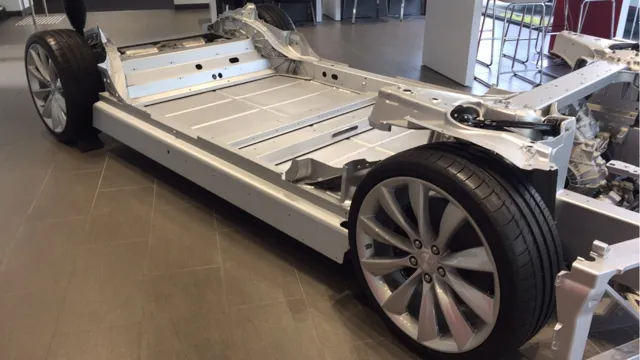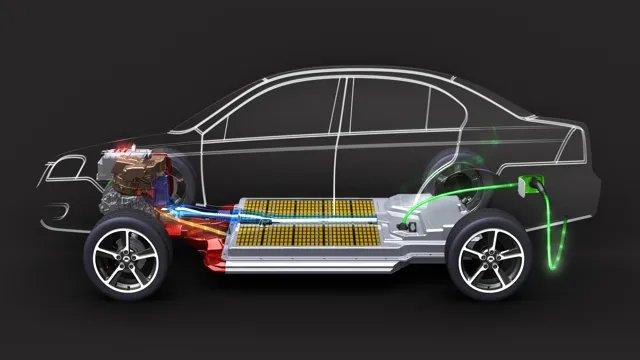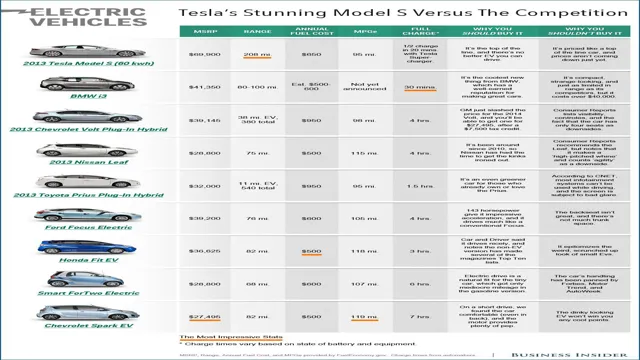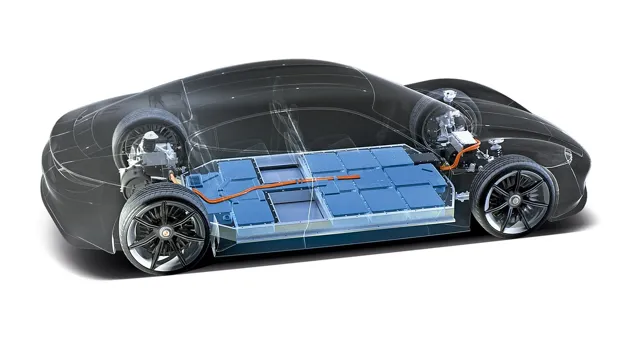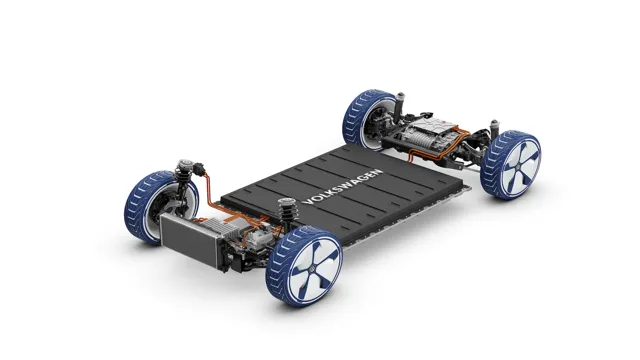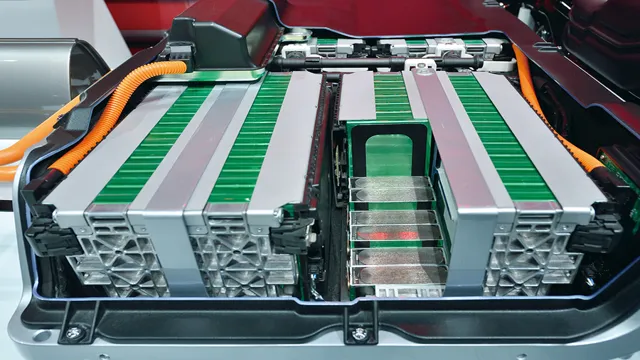Unveiling the Surprising Battery Life of the Top-Ranked Cheapest Electric Car of 2018
Electric cars have been gaining popularity over the years, primarily due to their eco-friendly nature, and the ever-increasing fuel prices. One of the most significant drawbacks of electric cars, however, has been their high upfront cost. However, this is changing now, as several budget-friendly electric cars have been released in the market recently.
Hence, we’ve prepared a list of the cheapest electric cars in 2018, with a battery life comparison to help you make an informed decision. These cars are perfect for budget-conscious buyers while remaining environmentally friendly. Moreover, these vehicles have a battery life ranging from 80 to 150 miles on a single charge, which is ideal for daily commutes or short trips around town.
This budget-friendly alternative allows you to save money while still driving an electric vehicle, which is a win-win situation for both you and the environment. From the iconic Nissan Leaf and Renault ZOE to the new kids on the block; BMW i3 and Smart EQ ForTwo, these electric cars come in different shapes, sizes and specifications. Each vehicle offers various features that cater to different needs and preferences.
To add to their appeal, additional incentives, such as tax credits, make them an even more affordable option for drivers who are looking to make the switch. Finally, choosing to drive an electric car is not only budget-friendly, but it’s also an eco-conscious decision that can help to prevent climate change. Considering that road vehicles are one of the largest contributors to greenhouse gas emissions, every small step in the right direction counts.
With the release of these new, budget electric cars, you can join the electric car movement without breaking your bank.
Overview of Electric Cars on the Market
When it comes to electric cars, the battery life is one of the most critical aspects to consider, especially for budget-conscious buyers. In 2018, the cheapest electric car available on the market was the Nissan Leaf, with a starting price of around $30,000. The base model came with a 40-kWh battery, which offered a combined range of up to 150 miles on a single charge.
However, this varied based on factors such as driving style, terrain, and weather conditions. If you were looking for a longer battery life, you could opt for a more expensive model or choose a vehicle with a larger battery capacity. Overall, the Nissan Leaf was a popular choice for those seeking a practical, affordable, and eco-friendly transportation option, but with a limited battery life compared to some of the more expensive EVs out there.
Top 5 Cheapest Electric Cars in 2018
Electric Cars Electric cars have become increasingly popular over the years, and with good reason. They are environmentally friendly, fuel-efficient, and often come with tax benefits. However, they can also be quite pricey, making them inaccessible to many people.
That’s why we’ve compiled a list of the top 5 cheapest electric cars on the market in 2018 to give you an idea of what’s available. From the Nissan Leaf to the Smart EQ Fortwo, these electric cars offer great value without breaking the bank. Buying an electric car isn’t just about saving money on gas, it’s about making a statement.
By making the switch to an electric car, you’re choosing to reduce your carbon footprint and make a positive impact on the environment. So whether you’re looking to save money or make a difference, an electric car may be the perfect choice for you!

Battery Life Comparison of Top 5 Cheapest Electric Cars
Electric Cars, Battery Life, Cheapest, Comparison Electric cars have been gaining popularity in recent years with the advent of more affordable options on the market. The top 5 cheapest electric cars are the Nissan Leaf, Hyundai Ioniq, Kia Niro EV, Chevrolet Bolt, and the Tesla Model One of the most important factors to consider when purchasing an electric car is battery life.
The Nissan Leaf has a battery life of up to 226 miles, making it a popular choice for city drivers. The Hyundai Ioniq has a range of up to 170 miles on a single charge, while the Kia Niro EV can go up to 239 miles. The Chevrolet Bolt has a range of 259 miles, while the Tesla Model 3 has the longest range of all with up to 353 miles on a single charge.
Comparing the battery life of these top 5 cheapest electric cars can help consumers make the best decision when it comes to purchasing an electric car that fits their needs.
Factors that Affect Electric Car Battery Life
If you’re interested in purchasing the cheapest electric car in 2018, it’s important to understand the factors that can affect the battery life. The battery life of an electric car is crucial to its performance and overall lifespan. One factor that can impact the battery life is temperature.
Extreme heat or cold can cause the battery to weaken and lose its charge capacity. Another factor is the age of the battery, with older batteries being more prone to degradation over time. The driving habits of the owner, such as frequent fast acceleration and hard braking, can also decrease the battery life.
However, with proper care and maintenance, an electric car battery can last for many years. It’s important to regularly charge the battery and avoid letting it drain completely. Additionally, keeping the battery at a moderate temperature and driving in a way that conserves energy can improve the battery’s lifespan.
Understanding these factors can help you get the most out of your electric car and ensure that it remains an environmentally friendly and cost-effective option.
Battery Size and Capacity
Electric car battery life is influenced by several factors, including the size and capacity of the battery. Generally, the larger the battery size, the longer the electric car can travel without needing to be charged. However, battery capacity also plays a significant role in determining the car’s driving range, as it dictates how much energy the battery can store.
Factors that can affect battery capacity include temperature, age, usage habits, and charging patterns. In general, electric cars experience some battery degradation over time, but proper care and charging can help prolong battery life. It’s important to remember that battery life and performance can vary greatly depending on the make and model of the vehicle, as well as the specific battery chemistry used.
As electric car technology continues to evolve, battery life and capacity are likely to improve, making electric vehicles an increasingly attractive option for eco-conscious drivers.
Driving Conditions and Habits
Electric car battery life can be influenced by various factors, including driving conditions and habits. Driving on a rough road or uphill for extended periods can cause the battery to drain quickly, leading to a shorter range. Additionally, fast acceleration and frequent braking can strain the battery, reducing its lifespan.
Therefore, it is essential to drive at moderate speeds and maintain a steady pace to conserve battery power and extend its life. Another driving habit that affects electric car battery life is the use of air conditioning and heating systems, as they draw significant power from the battery. Using these systems sparingly or pre-cooling or pre-heating the car while it’s still plugged in can help save power and optimize battery life.
Overall, adopting good driving practices can go a long way in keeping your electric car battery healthy and ensuring it lasts as long as possible.
Maintenance and Usage Tips for Maximizing Battery Life
Electric car battery life is a crucial aspect of owning and maintaining an electric vehicle. Several factors can affect the battery life of an electric car, from the weather and daily usage to maintenance routines and charging habits. For instance, extreme temperatures, either too hot or too cold, can reduce the battery’s overall lifespan.
Similarly, rapid charges and discharges, frequent deep cycling, and driving at high speeds for extended periods can contribute to lesser battery performance, reduced range, and shorter battery life. It’s vital to develop good charging habits, such as avoiding charging to 100% or draining the battery to zero, to maximize its life. Additionally, regular maintenance on the battery’s cooling system, tire pressure, and brakes, can help extend its life.
When it comes to choosing an electric car, it’s essential to opt for reputable brands and high-quality batteries known for their longevity, such as Tesla’s state-of-the-art battery technology. A well-maintained and adequately used electric car battery can last for years, providing an efficient and environmentally friendly mode of transportation.
Conclusion: Is a Cheap Electric Car Worth It for Battery Life?
In conclusion, the battery life of the cheapest electric car in 2018 may not have the same endurance as pricier models, but it’s all about perspective. Think of it as the scrappy underdog, the Rocky Balboa of the electric car world. It may not win a marathon, but it can still go the distance, and at a fraction of the cost.
Plus, with the constant advancements in battery technology, who knows what the future holds for our reliable yet humble budget-friendly electric cars. So, don’t underestimate the little guy – they may surprise you yet!”
Factors to Consider Before Purchasing
When it comes to purchasing an electric car, one of the most important factors to consider is the battery life. Electric car batteries are a crucial component, as they store the energy needed to power the vehicle. However, the lifespan of an electric car battery can vary based on several factors.
One such factor is temperature. Extreme temperatures, both hot and cold, can negatively impact the battery’s capacity and shorten its life. The type of driving can also affect battery life, as aggressive driving or driving at high speeds can drain the battery more quickly.
Another consideration is the age of the battery, as older batteries may have lost some of their capacity over time. When purchasing an electric car, it is crucial to research the type of battery used and understand how different factors can affect its lifespan. By doing so, you can make an informed decision and ensure that you get the most out of your electric car.
Final Thoughts on Battery Life and Overall Value
When it comes to battery life in electric cars, there are several factors that can have an impact. One of the main factors is the type of battery used in the vehicle. Lithium-ion batteries, for example, tend to be more efficient and longer-lasting than other types of batteries.
Another factor is the age of the battery, as over time, the battery’s ability to hold a charge may begin to diminish. Additionally, certain driving habits can impact battery life, such as frequent rapid acceleration or leaving the car parked in extreme heat or cold for extended periods. When considering overall value, it’s important to keep in mind that the initial cost of an electric car may be higher than that of a traditional gasoline-powered vehicle, but the cost savings in terms of fuel and maintenance over time can make it a worthwhile investment.
Resources for Researching Electric Cars
If you’re looking for information on the battery life of the cheapest electric car in 2018, you’re in the right place. Researching electric cars can be daunting, but luckily there are a variety of resources available to help you make an informed decision. You can start by checking out car manufacturer websites for specifications on battery range and charging times, as well as expert review sites for hands-on insights.
Additionally, the US Department of Energy offers a comprehensive database of electric vehicles with detailed information on battery life and range, along with user ratings and prices. When it comes to the cheapest electric car in 2018, the Nissan Leaf and the Chevrolet Bolt offer good value for money and range from 150 to 238 miles per charge respectively. It’s important to note that battery life can vary depending on driving habits, weather conditions, and other factors, so it’s worth doing your own research and test driving before making a final decision.
FAQs
What is the battery life of the cheapest electric car available in 2018?
The battery life of the cheapest electric car available in 2018 varies depending on the make and model. However, most electric cars have a range of 80-100 miles on a full charge.
Is the battery life of the cheapest electric car enough for daily use?
It depends on your daily commute. If you have a short commute or access to charging stations at work, then the battery life of the cheapest electric car should be sufficient. However, if you have a long commute or need to make frequent long trips, you may need to opt for a car with a longer battery life.
How can I extend the battery life of my electric car?
There are several ways to extend the battery life of your electric car. These include avoiding frequent fast charging, reducing the use of accessories like air conditioning and heating, driving slower and more efficiently, and parking your car in a cool place.
What is the cost of replacing the battery of an electric car?
The cost of replacing the battery of an electric car can vary widely depending on the make and model of the car. On average, the cost can range from $5,000 to $15,000. However, some manufacturers offer warranty programs that cover battery replacement costs for a certain number of years or miles driven.

